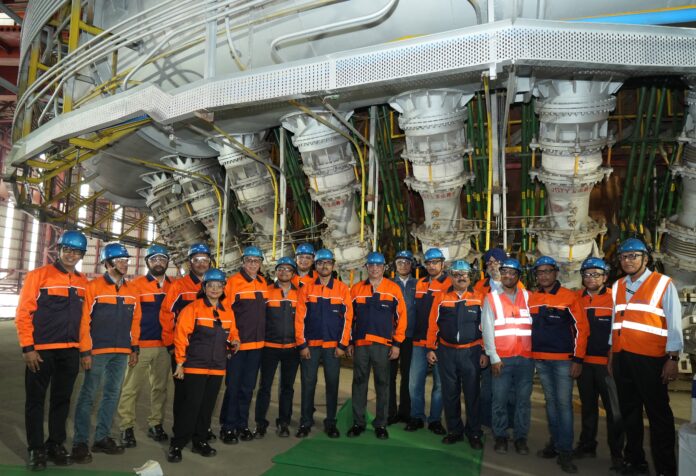Tata Steel today successfully commissioned India’s largest blast furnace at Kalinganagar, Odisha. With a total investment of Rs 27,000 crore, the Phase II expansion at Kalinganagar will take the total capacity at the site from 3 million tonnes per annum (MTPA) to 8 MTPA. The new facility was inaugurated by T. V. Narendran, CEO and Managing Director, Tata Steel, in the presence of senior leaders of the Company.
The new blast furnace will significantly boost the plant’s overall production capabilities, allowing Tata Steel to meet the growing demands of various industries, including automotive, infrastructure, power, shipbuilding, and defence. It will also provide advantages in specific areas like oil & gas, lifting & excavation, and construction.
With the Phase II expansion, Odisha has emerged as the largest investment destination in India for Tata Steel, with a total cumulated investment of over Rs 100,000 crore in the last 10 years.
On this occasion, T. V. Narendran, CEO and Managing Director, Tata Steel, said: “The commissioning of India’s largest blast furnace at Kalinganagar is a momentous occasion for the steel industry, setting new benchmarks in capacity, technology, and sustainability. A key enabler of socio-economic development in the region, the expansion not only strengthens Tata Steel’s position as a leader in high-end, value-added steel segments but also showcases our advanced engineering prowess. It underscores our commitment to boosting private investment in India, aligning with the nation’s vision for self-reliance and sustainable industrial growth. On behalf of Tata Steel, I thank the Government of Odisha for their unwavering support and applaud the collective efforts of our employees, suppliers & vendor partners, and all other stakeholders in enabling this significant milestone.”
The new blast furnace, with a volume of 5,870 m3, is equipped with state-of-the-art features for long campaign life and an eco-friendly design to optimise the steelmaking process. This blast furnace will utilise four top combustion stoves, a first in India, along with two preheating stoves for optimum specific fuel consumption in hot metal production. In a first for Tata Steel, a dry gas cleaning plant has been installed to maximise energy recovery from by-product gas. The world’s largest Top Gas Recovery Turbine (TRT) of 35 MW power generation capacity will help with the recovery of an additional 10% of energy. An evaporative cooling system is being employed for the first time in an Indian blast furnace, optimising space footprint while lowering specific water and power consumption by approximately 20% compared to conventional designs. The blast furnace will also have a zero-process water discharge plan with rainwater harvesting.
Key facilities in Phase II expansion at Kalinganagar also include a Pellet Plant, Coke Plant, and Cold Rolling Mill, each incorporating advanced technologies and sustainable practices. The new state-of-the-art steel plant incorporates modern technologies focused on value-added products, operational efficiency, and a significant reduction in carbon footprint.
The Kalinganagar plant is not just an industrial complex; it is a key contributor to the socio-economic development of the region. Tata Steel has invested significantly in community development programmes that focus on education, healthcare, and livelihood opportunities, positively impacting over 2 lakh people in the surrounding areas. The success of Tata Steel Kalinganagar is also deeply rooted in its workforce. Tata Steel’s ‘Safety First’ culture ensures that the highest safety standards are maintained, making Kalinganagar one of the safest steel plants in the country and the world.
Tata Steel Kalinganagar is the first Indian manufacturing plant to be named a Global Lighthouse by the World Economic Forum (WEF). In 2024, the Kalinganagar plant also received the prestigious ResponsibleSteelTM Certification, marking a significant milestone in its sustainability journey.
Disclaimer
Statements in this press release describing the Company’s performance may be “forward-looking statements” within the meaning of applicable securities laws and regulations. Actual results may differ materially from those directly or indirectly expressed, inferred or implied. Important factors that could make a difference to the Company’s operations include, among others, economic conditions affecting demand/ supply and price conditions in the domestic and overseas markets in which the Company operates, changes in or due to the environment, Government regulations, laws, statutes, judicial pronouncements and/ or other incidental factors.
For queries and information
Sarvesh Kumar,Chief Corporate Communications, Tata Steel, sarvesh.kumar@tatasteel.com


